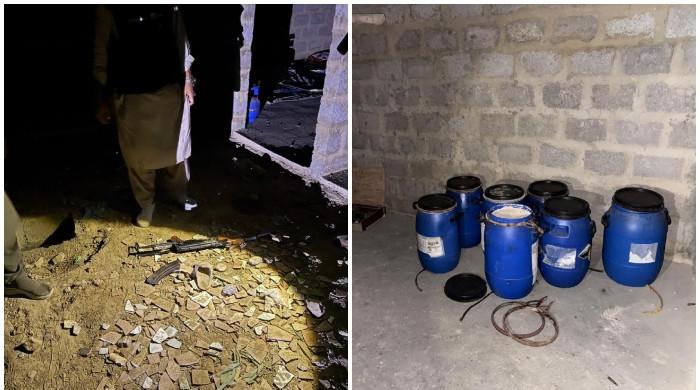'Unimaginable situation': Mufti Menk in Pakistan to help flood affectees
"Please do whatever you can with any reliable charity or partner for those affected," Mufti Menk says
September 20, 2022

Zimbabwean Islamic scholar Ismail ibn Musa Menk is in Pakistan to help the flood affectees as the country reels from its devastation that has crumbled infrastructure and left hundreds dead.
The Islamic scholar visited parts of Sindh, which is the most affected province, and noted that the situation is "unimaginable" and called on the people to donate as much as possible to cushion the plight of the people.
"Please do whatever you can with any reliable charity or partner for those affected. We will have to assist for the next few YEARS," Menk said, as Pakistan moves towards the rehabilitation of the flood-hit people.
Menk said he visited Pakistan with just one intention: to reach out by delivering some aid and creating further awareness about the plight of the millions who've been affected by the devastating floods.
"Please forgive me for not being able to entertain any unrelated meetings, visits or invitations. I made no exceptions," he added.
Record monsoon rains and glacial melt in northern Pakistan triggered the flooding that has impacted nearly 33 million people in the South Asian nation of 220 million, sweeping away homes, crops, bridges, roads and livestock in damages estimated at $30 billion.
Hundreds of thousands of people who have been displaced are living in the open, exposing them to the diseases spread in the stagnant waters. They are in dire need of food, shelter, clean drinking water, toilets and medicines, authorities have said.
UNICEF has termed the situation of the families "beyond bleak".
It says an estimated 16 million children have been impacted, and at least 3.4 million girls and boys remain in need of immediate, lifesaving support.
The country received 391 mm (15.4 inches) of rain, or some 190% more than the 30-year average through July and August, a monsoon spell that started early and stretched beyond the usual timeline. Rainfall in the southern province of Sindh shot up to 466% of the average.











